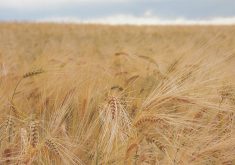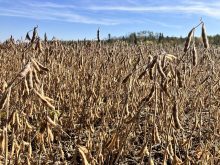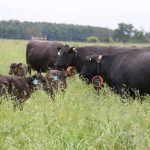Two wheat varieties resistant to the deadly Ug99 strain of stem rust are set for release in Kenya, says a report from United Nations’ Office for the Co-ordination of Humanitarian Affairs (IRIN).
The two varieties, dubbed Eagle10 and Robin, were developed by the Kenya Agricultural Research Institute (KARI).
Ug99 is named after its discovery in Uganda in 1999 and it is currently spreading across Africa, Asia and most recently into Middle East.
The rust strain is widely viewed as a major threat to world food security, as few, if any, of current wheat varieties are immune to the strain, which reportedly cuts yields by 50 to 70 per cent.
Read Also

More canola, spring wheat likely to be seeded this spring
As spring planting approaches, farmers are busy planning which crops to seed this year and how much. With that, market thoughts have turned toward planted area projections, as Statistics Canada is set to issue its report on Thursday.
Kenyan farmers have been abandoning wheat due to losses caused by Ug99. The IRIN report says production costs went up by 40 per cent between 2001 and 2011 with farmers this year having to spray wheat three times a season at a cost of Sh9,000 (US$90) per acre.
“That disease (Ug99) was a disaster to wheat farming; it turned out that I would not make any profit having spent too much on fungicides,” former wheat farmer Peter Thiongo said in the report.
“I planted corn in my five-acre farm, where I had for many years been growing wheat, but I am optimistic that the new varieties will save me money which I spent on fungicides, and I am ready to plant when seeds are available,” he said.
Since 2005, KARI has screened over 200,000 wheat germplasms, of which only 10 per cent were found to have some resistance to Ug99. Of the 10 per cent, only a handful could adapt to the Kenyan environment, said KARI plant breeder Peter Njau. He said both new varieties have very good baking and bread-making qualities.
KARI is working with the Kenya Seeds Company to multiply the varieties. “We are expecting to have produced more than 10 tons of the new seed variety by the end of this year,” said KARI director Ephram Mukisira.















